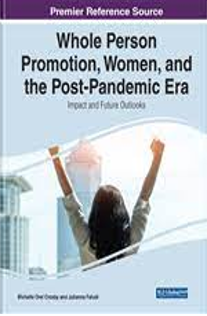Research & Studies


The chapter was written by Sanja Tepavcevic, iASK researcher and its title is (Un)Learned Resilience: Impact of the COVID-19 Pandemic on Post-Yugoslav and Post-Soviet Female Immigrants in Austria and Hungary.
It was released in a book titled Whole Person Promotion, Women, and the Post-Pandemic Era: Impact and Future Outlooks, edited by Michelle Crosby and Julianna Faludi, published by IGI Global in 2022.
Abstract
Since the times that Karl Polanyi named “the great transformation” and up to the pre-COVID-19 era, the market has played the central role in organization of the society. Such a system has affected women more profoundly: to be officially paid, they had to compromise professional and family life. The COVID-19 pandemic lockdowns added even more burden to them, returning education and childcare to the household realm. This chapter draws on the rich empirical data featuring postYugoslav and post-Soviet female immigrants’ experiences of the COVID-19 pandemic
in Austria and Hungary. The analysis reveals the ways in which experiences with previous global crises that represented radical changes influenced their resilience throughout the COVID-19 pandemic.
For more infos (e.g. purchasing), please click HERE.